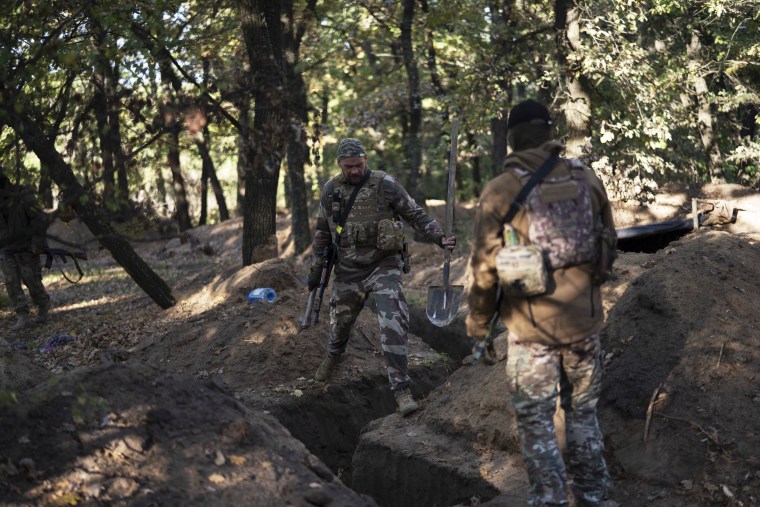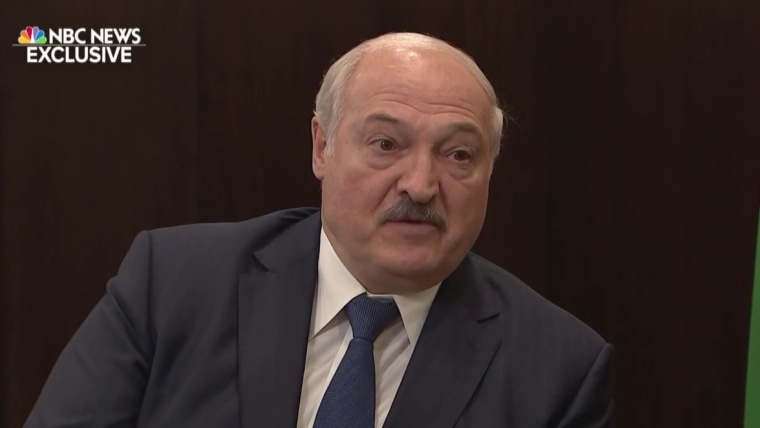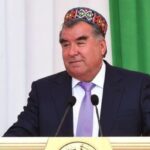Russian President Vladimir Putin has illegally annexed territory, attacked civilian targets, called up military reservists and threatened nuclear escalation. But the Kremlin still doesn’t seem confident that its military can hold back a Ukrainian counteroffensive ahead of winter.
Civilians in the country’s occupied south should evacuate to Russia, Moscow-installed officials there urged this week, in a sign that the Kremlin is worried about its hold on the strategic region as Kyiv pushes to reclaim more land there after recent breakthroughs.
The head of the Moscow-appointed regional administration, Vladimir Saldo, without using the word “evacuation,” asked Moscow Thursday to welcome families from the Kherson region that want “to protect themselves” from what he described as constant Ukrainian shelling.
The Kremlin promptly agreed to support such efforts, with officials in the southern Russian region of Rostov saying the first arrivals were expected Friday, the state news agency Tass reported.
Western military analysts said the move underlined Russia’s growing concern over its ability to hold Kherson, just weeks after it claimed to annex the region and in light of sudden gains made by Ukraine’s military this month — its biggest advance in the south since Russian forces seized it early in the war.
“You don’t evacuate from a region that you have recently annexed (illegally) if you are confident of holding it,” said Phillips O’Brien, a professor of strategic studies at the University of St. Andrews in Scotland. “I think we can read this as a sign that they are very worried about their ability to hold the west bank of the Dnieper River.”
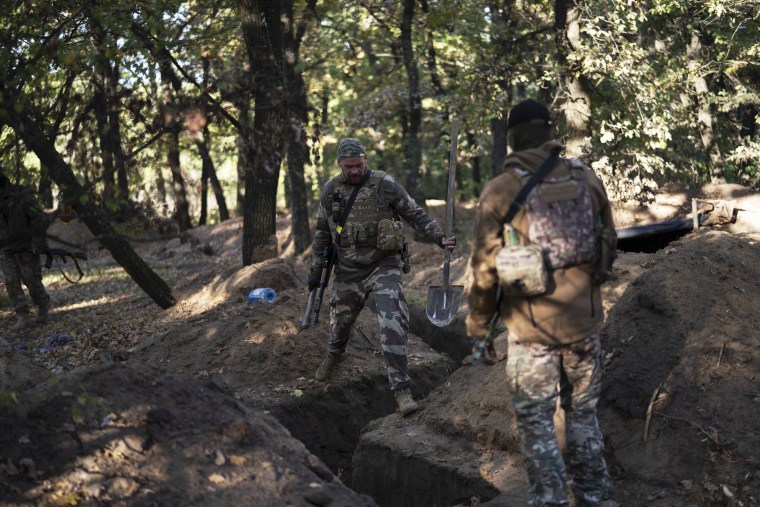
As Ukraine pressed on, Russian forces retreated from the front lines they had established in the area and sought to set up new positions they could hold along the strategic waterway.
Just hours after Saldo’s comments, the deputy head of Kherson’s Russian-installed administration, Kirill Stremousov, rushed to clarify that this was not an evacuation but an offer that has been long in the making.
“No one is making plans to retreat,” he said in a video message, as he urged people not to panic.
The preparation to evacuate some civilians could mean that the Russians are anticipating that combat could extend to the city of Kherson itself, the U.K. Defense Ministry said in its assessment of the situation Thursday.
The city is a strategic gateway to the Black Sea and the neighboring Crimean Peninsula, and has been critical in cementing Moscow’s grasp on the area. It’s the only regional center that the Russians have controlled since the start of the war.
Losing Kherson would deal a major blow to the Kremlin, with Putin himself boasting that it had been “reunited” with Russia forever after the region became one of four occupied provinces that Russia claimed to have annexed last month.
Kyiv has been striking Russian military sites and installations in the region for several months, according to its defense officials, as it prepared for its long-touted counteroffensive there. But Russian state media has been reporting that the strikes have also been damaging civilian structures and that some have resulted in civilian casualties. NBC News could not verify the claims.
After making initial gains in the region earlier this month, Ukraine’s advance appears to have slowed. Kyiv said it had liberated some 75 settlements in the region in the last month, with even more settlements being freed this week. NBC News could not verify these numbers.
It is difficult to assess what is actually happening on the ground in Kherson, analysts said, but Kyiv appears to be engaged in a kind of “boa constrictor strategy” in the region, said Neil Melvin, director of international security studies at the Royal United Services Institute, a London-based think tank. “Ukraine is gradually tightening its grip on that region, and so the Russians are now facing the reality that they are going to lose Kherson, probably in the next few weeks.”
Russia has some of its best-trained troops in that area, Melvin added, so it could hold out for longer, “but I think we are starting to see signs that the Russian forces there are in real trouble,” he added.
Konrad Muzyka, the director of Rochan Consulting, based in Poland, which specializes in Russia and Belarus, agreed, calling Russian positions north of the river “indefensible.”
“Russians will have to pull back,” Muzyka added. “The only question is when.”
U.S. Defense Secretary Lloyd Austin voiced confidence Wednesday that the Ukrainian offensive in the south and east would push through the winter. Ukraine’s army chief, Gen. Valeriy Zaluzhny, vowed Friday that “no one and nothing” can stop Ukraine.
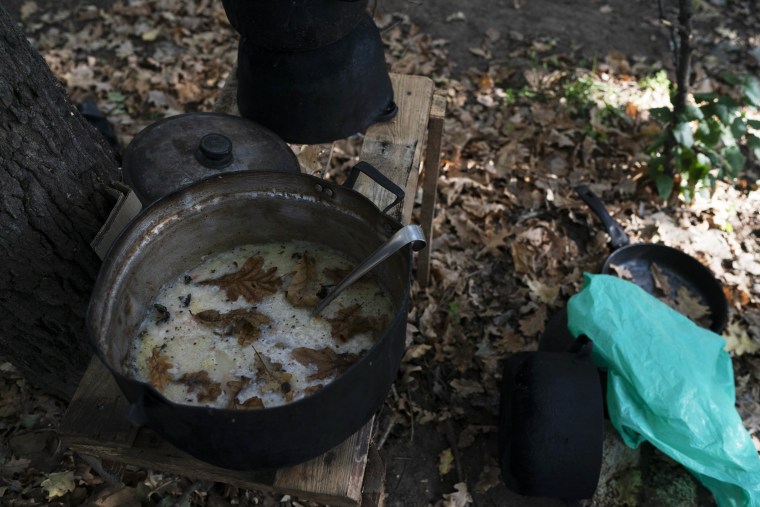
The optimism from Kyiv and its allies comes as Russia’s grip on the neighboring Crimean Peninsula, annexed in 2014, suffered a high-profile blow.
A key bridge connecting the peninsula to the Russian mainland was damaged last week in what Moscow called a “terrorist attack” by Ukraine, retaliating with a wave of deadly air strikes on its neighbor’s cities just days later.
The bridge, a personal project of Putin, has to be repaired no later than July 2023, a government document published Friday suggested — an extended timeline that calls into question Moscow’s ability to use the key route to supply troops in the south.
Faced with growing domestic criticism, Putin has been amping up his rhetoric in response to Ukraine’s battlefield successes and the bridge attack.
A weakening grip on Kherson could see him pushed to escalate even further, although Western analysts pointed out Friday that Russian troops had made some “tactical advances” in an area of Ukraine’s east.
With winter coming, Ukraine’s ability to push its counteroffensive will be put to the test, Melvin said, but for the Russians, the challenge will come in whether throwing newly mobilized, poorly trained recruits into battle while conditions worsen will further lower morale and weaken their ability to fight in the south.
“If Kherson falls, there will be a moment in which potentially there may be further breakthroughs by Ukraine,” Mevin said. “The Russians want to avoid that. But if the Kherson front collapses, then much of the south of Ukraine will be open at that point, so that could be a time when we may see an even bigger shift.”

